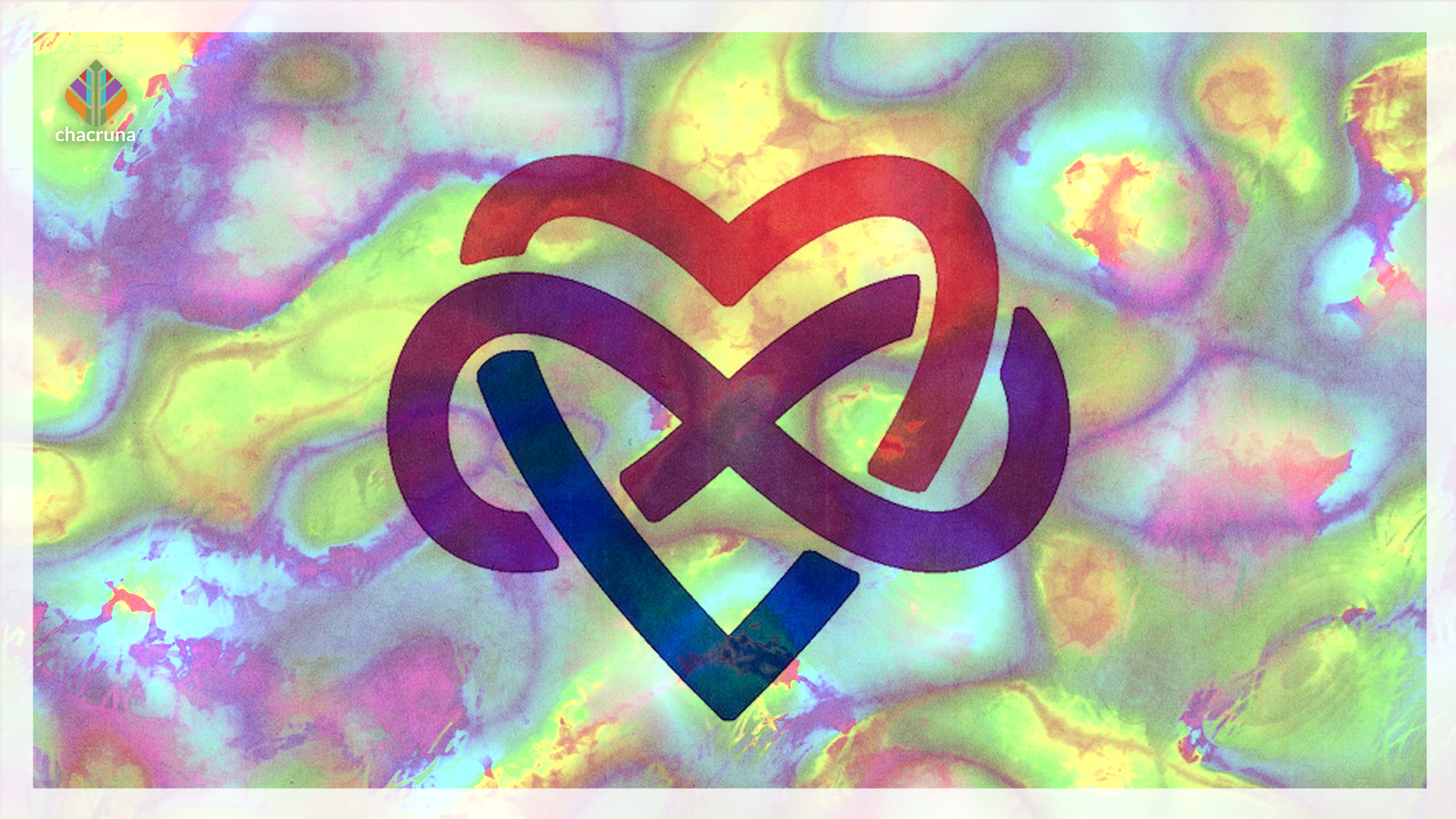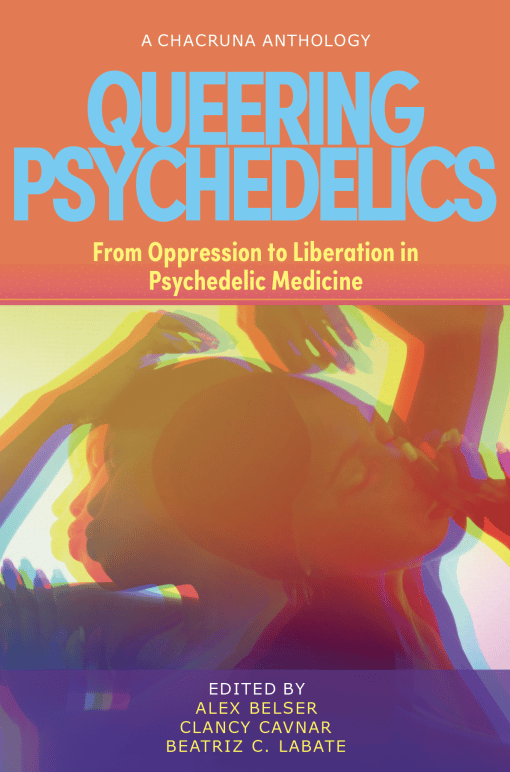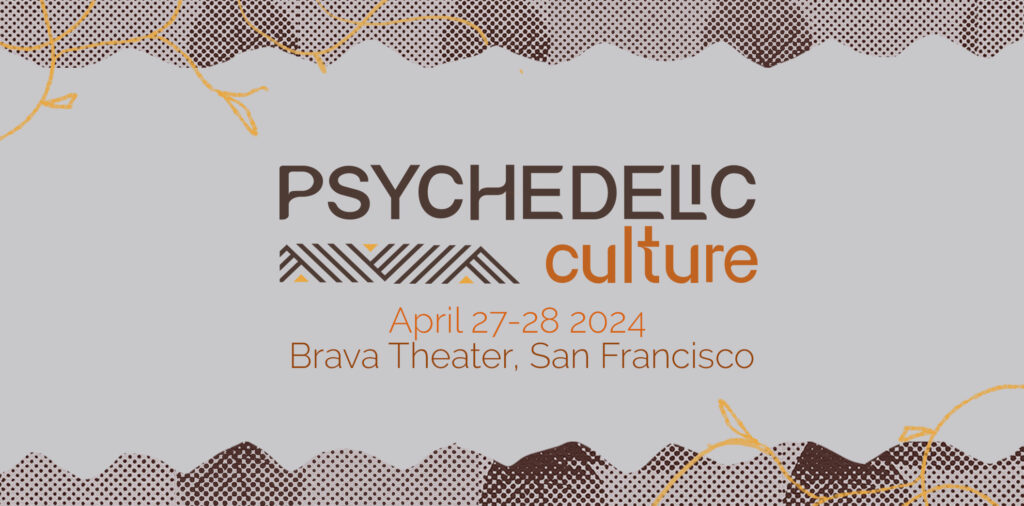- How Psychedelics Can Guide the Transformative Journey of Polyamory - April 2, 2024
- Jeering Psychedelics: A Critique of Jacques Mabit’s Criticism of Queering Psychedelics - February 4, 2022
- How Ayahuasca Can Help Gay Men Create Better Dance Parties - June 17, 2021
“Monogamy is necessary for truly committed love.” Take a moment and notice how that statement lands in your body. Do you expand? Do you clench? Now, try this one: “Monogamy is possessive and cruel.” Can you sense how your body responds now?
In my work as a psychotherapist, I have found few opinions that feel as personal or divisive as those around monogamy and polyamory. I hold a mindset that different arrangements work better for different people, and what works best may change over the course of one’s life. However, I also observe that institutions of power put monogamy on a pedestal in the postindustrial world. The result is a queering of other healthy forms of relationship that limits the love we share as a human family.
My intention with this paper is to help balance the scales. First, I will offer an expansive definition of polyamory and explore how it can be a journey of healing and transformation. I will then identify the three primary struggles I have observed along the polyamorous journey: shame, past trauma, and difficulty transcending labels. I will also illustrate how the spiritual and therapeutic use of psychedelics can help guide us through those struggles. To be clear, I make no claims for or against monogamy in this paper. I simply wish to highlight polyamory’s transformative potential and reclaim its validity.
The ideas in this paper come from my own psychedelic and polyamorous experiences, my clinical observations as a psychotherapist, and 25 transcribed interviews. All personal statements in this paper come from these interviews with the participants’ consent. I found interview participants by posting queries in Facebook groups related to psychedelic healing. The participants who responded were diverse in age, gender identity, sexual orientation, nationality, socioeconomic status, and preference for monogamy or polyamory. Each interview lasted approximately 30 minutes and followed a structured series of questions.
Explore Queering Psychedelics: From Oppression to Liberation in Psychedelic Medicine
POLYAMORY IS NOT NECESSARILY ABOUT SEX
People often use the term “polyamory” to describe having multiple romantic or sexual relationships at once. I prefer to define it more broadly according to its Latin and Greek roots, which translate to “loving many.” From this angle, polyamory is not about sex per se. Rather, it is a transformative journey to participate in love’s abundance by removing the barriers within us that restrict its full expression. Janet Hardy and Dossie Easton (2009) express this concept eloquently in their seminal book on polyamory, The Ethical Slut:
As our relationships blossom all over the rainbow of possibility, each one may inspire different feelings of love. When we learn to recognize and welcome love as we find it in our hearts and in all of its many and marvelous manifestations—sexual love, familial love, friendly love, passionate love, gentle love, overwhelming love, caretaking love, and millions of others—we discover a river of nourishment that can flow through our lives in a constantly replenishing stream. (p. 29)
Polyamory, in this sense, does not require sex at all. As one participant reported, “I can thrive more in a friendship love—a transpersonal love.” Polyamory also does not discourage anyone from setting authentic boundaries around love. During vulnerable periods in a relationship, for example, polyamorous partners may need time for sexual exclusivity. Similarly, loving fully often involves compassionately curtailing some of our erotic desires and impulses that would harm our beloved.
Polyamory is a process of opening love’s flow. It means honoring that every encounter with another person, however fleeting, can be a sacred relationship if we allow it.
Instead, polyamory is a process of opening love’s flow. It means honoring that every encounter with another person, however fleeting, can be a sacred relationship if we allow it. For those of us who walk the transformative path of polyamory, the Universe itself is our soul mate.
POLYAMORY CAN BE A TRANSFORMATIVE JOURNEY
In my life and clinical work, I have observed that people seek both monogamy and polyamory for two basic purposes. One is to solve problems by avoiding discomfort and satisfying desires. For example, someone might seek monogamy because they desire security and want to avoid jealousy, whereas someone else might seek polyamory because they desire freedom and want to avoid stagnation. While there is nothing wrong with solving problems, not all problems are meant to be solved. Some are meant to be wrestled with for our growth.
That is the second purpose: to pursue monogamy and polyamory as paths on a transformative journey. Rather than avoiding discomforts like jealousy or stagnation, we can lean in more fully in “an active, difficult, uncomfortable working-through of one’s own complex psyche” for psychological and spiritual transformation (Guggenbühl-Craig, 2008, p. 29). As one participant reported, polyamory is “a lot of trial and error. That’s the hard part. Sometimes I wonder if it’s worth the stress, but the challenge allows for growth and deep connection.”
For the remainder of this chapter, I will explore the three primary struggles I have observed on the polyamorous journey. I will also demonstrate how working with psychedelics spiritually and therapeutically can help us navigate those struggles. Interestingly, interview participants reported that using psychedelics at parties and in other recreational settings did not pro- duce the same degree of benefit.
Find more information on the upcoming Psychedelic Culture Conference.
PSYCHEDELIC WORK HELPS TRANSFORM SHAME INTO SELF-LOVE
Of all the struggles that block us from sharing love freely, perhaps the most universal is shame. Religious institutions, cultural norms, media, laws, and even mental health establishments put monogamous relationships on a pedestal and devalue the myriad other ways humans can connect.
For example, the widely used “Sexual Addiction Screening Test” asks 45 questions to determine whether a person’s sexual behavior is healthy or addictive (Carnes, 2008). At least 30 of those questions pathologize behaviors that challenge social norms about sexuality but are not inherently harmful. For example: “Do you feel that your sexual behavior is not normal?” “Have you regularly engaged in sadomasochistic behavior?” and “Have you maintained multiple romantic or sexual relationships at the same time?” Simply walking the path of polyamory is enough to earn a point towards a sex-addiction diagnosis!
The heteronormative narrative of monogamy can cause people to feel abnormal and hide in the closet. Participants reported “It was challenging to feel like the black sheep, as [my roommates] had more traditional views of sex and relationships” and “I know parents who are sometimes accused of being child abusers because they’re polyamorous.” This narrative can also compel people to cheat when there is no option to be openly polyamorous—further exacerbating shame. As one participant shared, “I used to always be poly, but without my partners knowing, and without me even knowing it was an option or who I wanted to be.”
Participants were nearly universal in reporting that working with psychedelics helped them release the shame that kept them in the closet. For example:
After my first psychedelic-assisted therapy, I came out knowing that I want to be fully open about [polyamory]. It was clear as day for me that this was the path. I felt no shame whatsoever. Now, I’m embracing this part as opposed to hiding it and pushing it aside.
Participants also reported that psychedelics helped them see beyond their limiting beliefs around sex and relationships in order to understand and love themselves more deeply: “Before journeying, [polyamory] felt taboo. Afterwards, social constructs fell apart. There’s not just one way.” “Before the spiritual use of psychedelics, I did stuff randomly and didn’t know who I was or what I really liked; I know myself a lot better now and have more confidence.” And “there can be a two-step process of coming to terms with being gay, and then the second step is what kind of gay I am. Psychedelics took me to that second point.” These outcomes may be due to psychedelics’ heart-opening properties, which could help us compassionately explore and accept parts of ourselves that exist outside social norms.
PSYCHEDELIC WORK HELPS HEAL PAST RELATIONAL TRAUMA
Another common struggle when sharing love freely is that it can bring up trauma from our childhood relationships with caregivers. Psychologists call this “attachment trauma” because it disrupts the way we emotionally attach with those closest to us (Levine and Heller, 2011).
When a child’s caregivers are consistently emotionally available and attuned to their needs, that child “develops a sense of safety and trust” in the world (Fern, 2020, p. 28). This results in a secure attachment style. Securely attached people enjoy close intimacy in relationships, feel secure in their partner’s love for them, and find it easy to communicate their needs and respond to their partner’s needs. For these reasons, securely attached people generally have an easier time navigating the challenges of polyamory. In contrast, when caregivers are physically or emotionally absent, threatening, smothering, overprotective, overwhelmed, or inconsistently available, then a person is likely to develop an avoidant or anxious attachment style (Levine and Heller, 2011). Avoidantly attached people learned self-reliance because they could not count on anyone else. Too much closeness in relationships can threaten their independence. They therefore tend to keep others at an emotional distance and have difficulty communicating their feelings and needs. I have found in my work that avoidantly attached people often use polyamory as a tool to avoid intimacy rather than deepen it.
Anxiously attached people developed a “sixth sense for danger” in relationships because their early caregivers were unpredictable (Levine and Heller, 2011, p. 77). They tend to fear abandonment, overanalyze their partner’s behavior, have a high need for closeness and reassurance, and easily become jealous or frustrated when they sense their partner is disconnected. For these reasons, I have found that anxiously attached people tend to struggle the most with polyamory and often seek monogamy to avoid painful feelings of jealousy and insecurity.
Although attachment styles tend to remain stable over a lifetime, one can develop a more secure attachment style by healing the traumas underneath insecure attachment (Levine and Heller, 2011). The journey of polyamory asks us to confront and heal these attachment wounds instead of arranging our relationships to avoid facing them.
Although attachment styles tend to remain stable over a lifetime, one can develop a more secure attachment style by healing the traumas underneath insecure attachment. The journey of polyamory asks us to confront and heal these attachment wounds instead of arranging our relationships to avoid facing them.
In my interviews, I found psychedelics helped anxiously attached participants become more secure in polyamory: “It clicked that my partner is not my dad. Being able to witness all of that [jealousy] as something that doesn’t belong to me was super powerful” and “After my partner cheated on me, [psychedelics] helped me realize that it wasn’t right what he did, but all the pain I carried wasn’t mine.”
Psychedelics also helped avoidantly attached participants lean into their polyamorous relationships more deeply. For some, psychedelics helped them respond more securely to their partners’ emotional needs: “After psychedelics, I was able to stand firmly on my own ground when my partner feels insecure.” For others, psychedelics made it easier to connect without devaluing their partners as a way to reduce intimacy: “After psychedelics, I started having healthier relationships. I stopped looking for the perfect relationship that checked all the boxes. I started being more open to relationships with people without demanding a perfect experience.”
Although preliminary studies confirm that psychedelic-assisted therapy can increase secure attachment (Stauffer et al., 2020), we have yet to discover the mechanism for how this healing occurs. It may be that deepening our transpersonal relationships with body, spirit, nature, and the interconnected universe could compensate for insecurity in our personal relationships. As one participant shared, “Psychedelics opened my skin, opened my heart, opened my soul to trust in pure love—to trust in my own body. I don’t need anyone else to experience that ecstasy.”
PSYCHEDELIC WORK HELPS OUR RELATIONSHIPS TRANSCEND LABELS
The third primary struggle on the journey of polyamory involves transcending the labels that bind our relationships. Labels are not inherently bad. They simplify a complex world and help us make meaning. However, because labels simplify, labeling relationships comes at a cost. Labels such as “friend,” “lover,” and “stranger” carry customs and expectations that can restrict our relationships. For example, one might not consider raising a child with their friend or reaching out to an acquaintance for emotional support. Although labels simplify, they can limit the love available in our lives.
Psychedelics help us transcend our labeling ego to see the full complexity and potential of our relationships.
Psychedelics help us transcend our labeling ego to see the full complexity and potential of our relationships. By removing limits and expectations, we are able to access what Hardy and Easton (2009) call “clean love”:
How many times have you rejected the possibility of love because it didn’t look the way you expected it to? Perhaps some characteristic was missing you were sure you must have, some other trait was present that you never dreamed of accepting. What happens when you throw away your expectations and open your eyes to the fabulous love that is shining right in front of you, holding out its hand? Clean love is love without expectations. (p. 59)
To illustrate how psychedelics help us access clean love, it is fitting to share my own story. In one ayahuasca ceremony, years ago, the medicine moved me to tears as it revealed all the relationships in my life freed from love’s labels. When my best friend of eight years appeared in the vision, I felt an explosion of energy. “This man is my husband!” It was not that I fell in love with him in that moment. Rather, with fresh eyes, I could finally see we had been loving each other as husbands all along. After the ceremony, I texted him, “It’s time for us to deepen our bond.” He replied simply, “Duh,” and told me he had the same realization during another ayahuasca ceremony one year earlier. We just celebrated our second wedding anniversary.
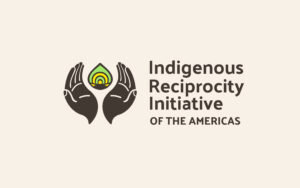
Discover the Indigenous Reciprocity Initiative of the Americas
INTEGRATION
Polyamory is not easy. To remove the barriers that prevent us from fully participating in love’s abundance, we must face our shame, resolve past traumas, and surrender to love without labels. Luckily, we are not alone. Psychedelics can help guide us on this transformative path.
Take a moment again to sense into your body. Do you notice excitement? Agitation? Without grasping for an answer, let yourself imagine where untapped rivers of love might exist in your life, just waiting to be welcomed in. May your journey of discovery last a lifetime.
Note: “How Psychedelics Can Guide the Transformative Journey of Polyamory” by Justin Natoli was originally published in Queering Psychedelics: From Oppression to Liberation in Psychedelic Medicine (Synergetic Press 2022).
Art by Mariom Luna.
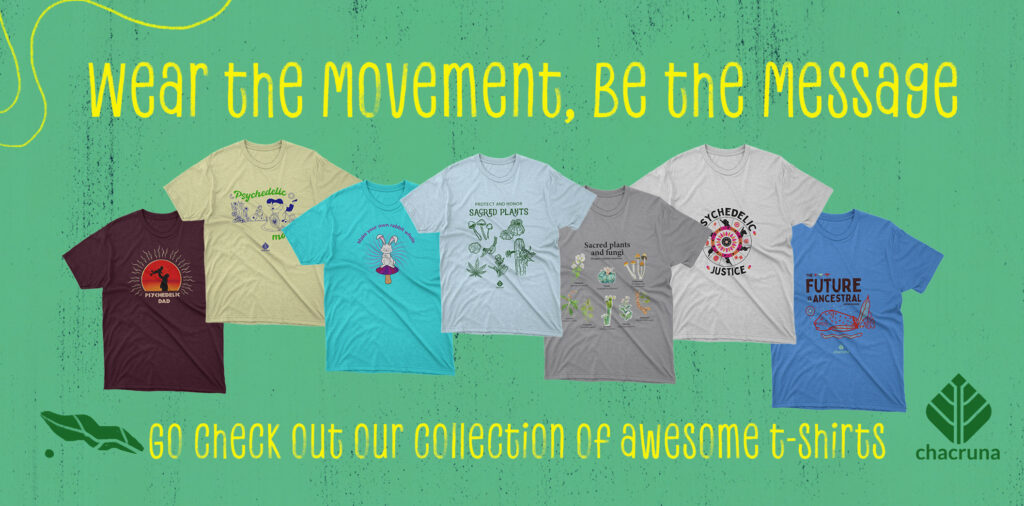
Shop our Collection of Psychedelic T-Shirts.
Take a minute to browse our stock:
Did you enjoy reading this article?
Please support Chacruna's work by donating to us. We are an independent organization and we offer free education and advocacy for psychedelic plant medicines. We are a team of dedicated volunteers!
Can you help Chacruna advance cultural understanding around these substances?










